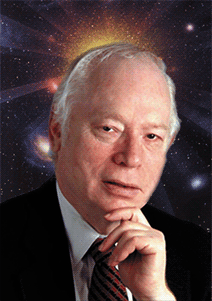May 3: Steven Weinberg (1933)
Weinberg was elected to the American Academy of Arts and Sciences in 1968 and to the National Academy of Sciences in 1972. Even after his 1979 Nobel, Weinberg won the National Medal of Science in 1991 and the Lewis Thomas Prize for Writing about Science in 1999. Along with being a prominent public spokesman for science, Steven Weinberg has been a major participant in what is known as the Science Wars, arguing for hard realism in science and scientific knowledge against the constructionism proposed by a number of social scientists. In 2002 the American Humanist Association elected him Humanist of the Year. Politically, Weinberg is known for supporting Israel, yet he is also an atheist. In a 1999 address at the Conference on Cosmic Design, he said, “One of the great achievements of science has been, if not to make it impossible for intelligent people to be religious, then at least to make it possible for them not to be religious. We should not retreat from this accomplishment.”
In his closing statements at the 5 November 2006 Beyond Belief conference on Science, Religion, Reason and Survival, Weinberg went further, saying,
There are those whose views about religion are not very different from my own, but who nevertheless feel that we should try to damp down the conflict, that we should compromise it. … I respect their views and I understand their motives, and I don't condemn them, but I'm not having it. To me, the conflict between science and religion is more important than these issues of science education or even environmentalism. I think the world needs to wake up from its long nightmare of religious belief; and anything that we scientists can do to weaken the hold of religion should be done, and may in fact be our greatest contribution to civilization.
But Weinberg’s most prominent statement on the subject is from that 1999 address,
Frederick Douglass told in his Narrative how his condition as a slave became worse when his master underwent a religious conversion that allowed him to justify slavery as the punishment of the children of Ham. Mark Twain described his mother as a genuinely good person, whose soft heart pitied even Satan, but who had no doubt about the legitimacy of slavery, because in years of living in antebellum Missouri she had never heard any sermon opposing slavery, but only countless sermons preaching that slavery was God’s will. With or without religion, good people can behave well and bad people can do evil; but for good people to do evil—that takes religion.*
* Quote from “A Designer Universe” by Steven Weinberg; article is based on a talk given in April 1999 at the Conference on Cosmic Design of the American Association for the Advancement of Science in Washington, D.C.


